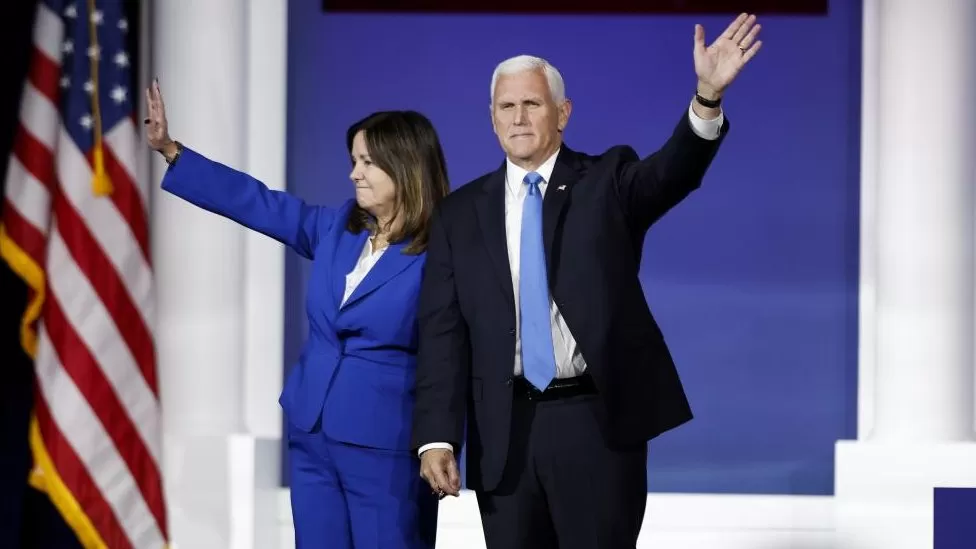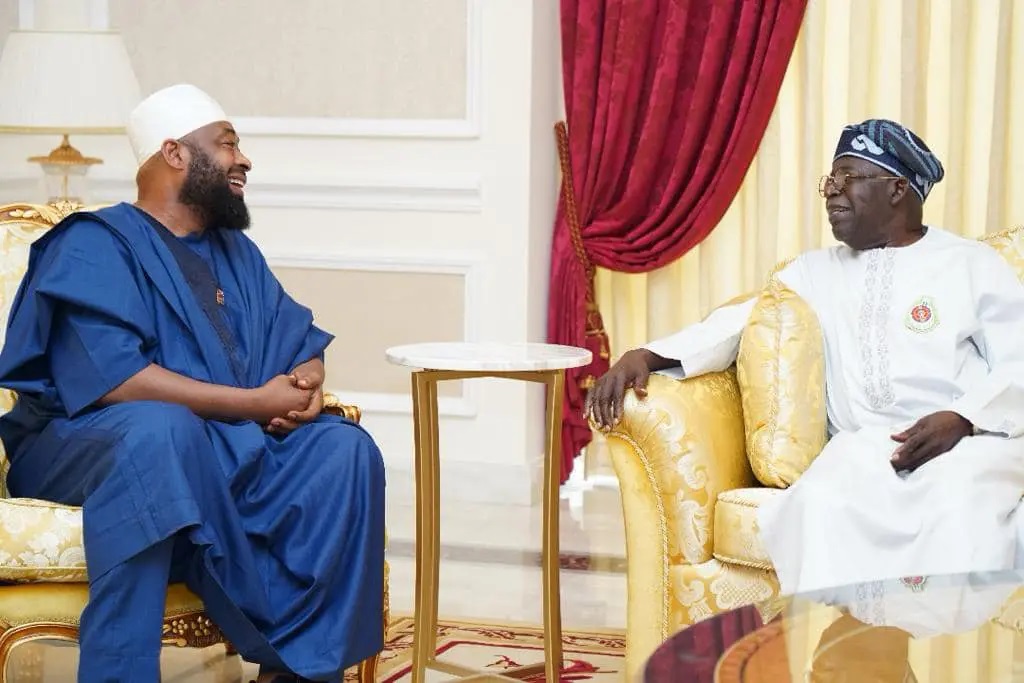Former US Vice President Mike Pence’s withdrawal from the 2024 presidential race marks a pivotal moment in the GOP’s trajectory. Discover the implications of his decision and its impact on the evolving political landscape.
Former US Vice President Mike Pence recently declared his withdrawal from the 2024 presidential race during a pivotal moment at the Republican Jewish Coalition event in Las Vegas. Despite an uphill battle, Pence emphasized that he holds no regrets, as reported by the Associated Press. The decision comes as a significant development, revealing insights into the shifting dynamics within the Republican Party and the broader scope of American politics.

Mike Pence waves after announcing his withdrawal from the race
Implications of Pence’s Withdrawal: A Shift in the Republican Presidential Race
As the news of Mike Pence’s exit from the 2024 presidential race reverberates across the political spectrum, it underscores the challenges faced by Republican candidates seeking to differentiate themselves in a post-Trump era. Pence’s attempt to distance himself from former President Donald Trump, particularly following the 6 January Capitol riot, had significant implications for his standing within the GOP. His failure to garner substantial support and the subsequent accumulation of substantial campaign debt further underscore the complexities of navigating a fractured party landscape.
The Changing Dynamics of the Republican Party: A Post-Trump Era
Mike Pence’s political trajectory represents the complex dynamics at play within the modern Republican Party. Amid the legacy of the Trump administration, the party continues to grapple with reconciling divergent factions and ideological shifts. Pence’s strained relationship with the former President, coupled with his role in certifying Joe Biden’s 2020 election victory, illustrates the broader ideological divisions and power struggles shaping the GOP’s narrative. With the emergence of new voices and potential frontrunners, the vacuum left by Pence’s withdrawal serves as a lens through which to analyze the evolving contours of Republican politics.
Financial Challenges and Political Standing: The Significance of Campaign Debt
An integral aspect of Mike Pence’s decision to withdraw from the 2024 presidential race revolves around the financial challenges that plagued his campaign. With a substantial debt of $621,000 (£512,038) and limited financial reserves, Pence’s ability to sustain a competitive edge in the race for the Republican nomination dwindled. The financial constraints not only underscore the demanding nature of modern political campaigns but also highlight the intricate relationship between financial stability and political viability within the competitive landscape of American politics.

Mike Pence waves after announcing his withdrawal from the race
Paving the Way Forward: The Unfolding Narrative of the GOP’s Future
As Mike Pence’s departure recalibrates the dynamics of the 2024 presidential race, it sets the stage for emerging candidates to shape the future trajectory of the Republican Party. With the specter of Donald Trump’s influence looming large, the party grapples with defining its identity and priorities in the post-Trump era. Pence’s withdrawal presents an opportunity for a new generation of Republican leaders to redefine the party’s values, policies, and electoral strategies, paving the way for a dynamic and potentially transformative chapter in the evolution of American conservatism.
In the wake of Mike Pence’s withdrawal from the 2024 presidential race, the Republican Party faces a critical juncture that will define its trajectory in the coming years. The repercussions of this decision reverberate beyond individual candidacies, offering a glimpse into the broader narrative of American politics and the intricate interplay of ideology, leadership, and public sentiment shaping the nation’s political landscape.





